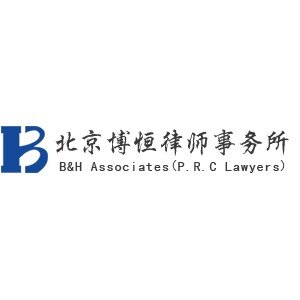Best Acquisition / Leveraged Finance Lawyers in Beijing
Share your needs with us, get contacted by law firms.
Free. Takes 2 min.
List of the best lawyers in Beijing, China
About Acquisition / Leveraged Finance Law in Beijing, China
Acquisition and leveraged finance refer to the legal and financial structures used to fund the purchase of companies, typically involving significant borrowings. In Beijing, China, acquisition finance commonly supports mergers and acquisitions (M&A), allowing buyers to use borrowed funds to acquire a target business. Leveraged finance typically involves higher-than-normal debt ratios, using the target's assets or future cash flows as collateral. This area of law in Beijing is complex due to the interplay of local regulations, cross-border elements, and the scrutiny of foreign investments by Chinese authorities.
Why You May Need a Lawyer
Seeking a lawyer with expertise in acquisition or leveraged finance is essential for several reasons. Here are some common scenarios where legal help is crucial:
- Structuring an acquisition that involves multiple funding sources or cross-border transactions.
- Negotiating and drafting finance documents, such as loan agreements or security documents.
- Ensuring compliance with Chinese regulations regarding foreign investment, exchange controls, or industry-specific restrictions.
- Due diligence on the target company's assets, liabilities, and debts.
- Advising on risk allocation between borrowers, lenders, and guarantors.
- Interpreting government approvals or licensing requirements in regulated industries.
- Advising on tax implications and structuring financing in a tax-efficient manner.
- Resolving disputes or restructuring existing leveraged finance arrangements.
Local Laws Overview
Acquisition and leveraged finance in Beijing are subject to a range of national and local laws, as well as supervision by several government agencies. Notable points include:
- Foreign Investment Law: Limits and approvals may apply to foreign investors or offshore loans related to acquisitions.
- SAFE Regulation: The State Administration of Foreign Exchange sets rules regarding the movement of currency, cross-border guarantee structures, and conversion of loan funds.
- Company Law and M&A Rules: Transactions must comply with procedures on shareholder approval, employee consultation, and asset transfers.
- Banking and Financial Institution Supervision: Chinese banks and non-bank lenders are regulated under the Banking Law and related guidance, including restrictions on lending and collateral.
- Security Interest Law: Rules on pledge and mortgage of assets, shares, or receivables are strictly applied.
- Antitrust and Competition Law: Certain acquisitions require review by the State Administration for Market Regulation (SAMR).
- Taxation: Financing structures may impact stamp duty, value-added tax, and deed tax obligations.
Given these overlapping regulations, legal advice is critical to identify risks and ensure deals are executed in compliance with local law in Beijing.
Frequently Asked Questions
What is leveraged finance in a Chinese context?
Leveraged finance typically involves the use of borrowings to fund an acquisition, using assets or expected cash flows of the target as collateral. In China, all such deals must comply with domestic lending and currency control rules.
Can foreign companies participate in leveraged buyouts in Beijing?
Yes, but there are restrictions on foreign participation in certain sectors. Approvals from MOFCOM or NDRC may be required, and currency controls must be observed for cross-border lending or repatriation of funds.
What approvals are typically needed for an acquisition financed by debt in Beijing?
Depending on deal structure, approvals may be required from industry regulators, shareholders of the target, SAFE for cross-border borrowing, SAMR for anti-monopoly review, and local tax authorities.
What types of security can be used for leveraged loans in China?
Common forms include pledges of shares, mortgages over real estate, charges on receivables, or stocks. Perfection and registration of security interests follow strict legal requirements.
Are offshore loans permitted to finance acquisitions in Beijing?
Offshore loans are possible, but they are subject to currency control regulations, registration with SAFE, and often approval from multiple government agencies.
What are the risks of non-compliance with acquisition finance regulations?
Risks include fines, invalidation of the transaction, penalties for illegal foreign exchange transactions, restriction on remittance of proceeds, and reputational damage.
Can RMB-denominated loans be used in leveraged finance?
Yes, local banks provide RMB loans for acquisitions, but usage and scope may be limited by sector regulations and credit policies.
What is the role of due diligence in acquisition finance?
Due diligence is vital to identify hidden liabilities, potential regulatory issues, and the actual value of collateral offered for loans.
Are there restrictions on repayment or interest rates for acquisition finance in China?
Yes, the People’s Bank of China and the China Banking and Insurance Regulatory Commission set guidance on interest rates, with restrictions on usury and early repayment in certain cases.
Who are the main regulatory bodies over acquisition finance in Beijing?
Key regulators include SAFE, SAMR, MOFCOM, NDRC, and tax authorities, depending on the nature of the deal and parties involved.
Additional Resources
Individuals and businesses seeking information or assistance related to acquisition or leveraged finance in Beijing can refer to the following resources:
- State Administration of Foreign Exchange (SAFE) - Oversees cross-border currency and lending regulations.
- Ministry of Commerce (MOFCOM) - Approves foreign investment-related M&A transactions.
- State Administration for Market Regulation (SAMR) - Handles anti-monopoly and competition reviews.
- National Development and Reform Commission (NDRC) - Supervises investments in certain key sectors.
- China Banking and Insurance Regulatory Commission (CBIRC) - Regulates banks and lending institutions.
- Local Beijing Bar Association - Provides directories for qualified finance and M&A lawyers.
- Local commercial chambers and industry associations - Offer networking and practical guidance.
Next Steps
If you need legal assistance in acquisition or leveraged finance in Beijing, consider the following steps:
- Define your objectives and gather relevant documents about the proposed transaction or financing arrangement.
- Consult with a qualified lawyer experienced in acquisition finance and familiar with the nuances of Chinese law and industry practice.
- Prepare a list of questions addressing key concerns such as compliance, approvals required, and risk management.
- Engage legal counsel early in the transaction to navigate regulatory hurdles and negotiate contractual terms.
- Ensure ongoing communication between legal advisors, financial institutions, and regulatory authorities throughout the process.
- If a dispute or regulatory challenge arises, have your legal team ready to address enforcement, restructuring, or renegotiation options.
Professional legal support is vital to successfully completing acquisition or leveraged finance transactions in Beijing, ensuring both compliance and commercial objectives are met.
Lawzana helps you find the best lawyers and law firms in Beijing through a curated and pre-screened list of qualified legal professionals. Our platform offers rankings and detailed profiles of attorneys and law firms, allowing you to compare based on practice areas, including Acquisition / Leveraged Finance, experience, and client feedback.
Each profile includes a description of the firm's areas of practice, client reviews, team members and partners, year of establishment, spoken languages, office locations, contact information, social media presence, and any published articles or resources. Most firms on our platform speak English and are experienced in both local and international legal matters.
Get a quote from top-rated law firms in Beijing, China — quickly, securely, and without unnecessary hassle.
Disclaimer:
The information provided on this page is for general informational purposes only and does not constitute legal advice. While we strive to ensure the accuracy and relevance of the content, legal information may change over time, and interpretations of the law can vary. You should always consult with a qualified legal professional for advice specific to your situation.
We disclaim all liability for actions taken or not taken based on the content of this page. If you believe any information is incorrect or outdated, please contact us, and we will review and update it where appropriate.















